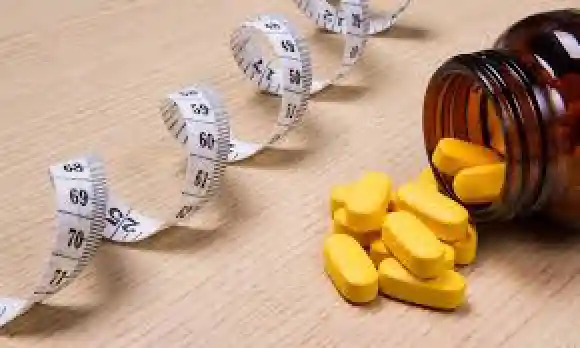Dangers of Weight Loss Pills and Supplements: What You Need to Know
- Advertisement -
In the quest for a slimmer physique or quick weight loss results, many people turn to weight loss pills and dietary supplements. These products promise rapid fat burning, appetite suppression, and metabolism boosts. However, TJ News Nigeria reports that beneath the shiny labels and alluring advertisements lie serious health risks that consumers often overlook.
This article explores the hidden dangers of weight loss pills and supplements, the science behind them, and safer alternatives for sustainable weight loss.
⚠️ Common Types of Weight Loss Pills and Supplements
- Advertisement -
Weight loss pills and supplements come in various forms, including:
- Fat burners (e.g., green tea extract, caffeine)
- Appetite suppressants (e.g., Garcinia cambogia, glucomannan)
- Carb blockers (e.g., white kidney bean extract)
- Thermogenics (stimulants that increase body temperature to burn calories)
While some may have short-term effects, they often carry long-term health consequences.
- Advertisement -
🧪 Potential Health Risks of Weight Loss Pills
1. Cardiovascular Problems
Many weight loss pills contain stimulants like caffeine or ephedra (now banned in many countries) that increase heart rate and blood pressure. These can lead to:
- Advertisement -
- Irregular heartbeat (arrhythmia)
- Hypertension
- Heart palpitations
- Increased risk of heart attack or stroke
TJ News Nigeria gathered that several hospital admissions in Nigeria in recent years were linked to over-the-counter weight loss products containing dangerous stimulants.
Read Also: Early Signs and Prevention of Diabetes: What You Need to Know to Stay Healthy
2. Liver and Kidney Damage
Certain fat-burning ingredients, especially those marketed as “natural,” can overload the liver and kidneys. Green tea extract, in high doses, has been associated with liver toxicity, while others can cause kidney strain, especially when used with low-water diets.
- Advertisement -
3. Psychological and Mental Health Issues
Many users experience:
- Anxiety
- Insomnia
- Mood swings
- Addiction-like behavior
Some weight loss supplements affect neurotransmitters in the brain, mimicking the effects of amphetamines, which can create dependency or worsen mental health conditions.
4. Digestive Problems
Common gastrointestinal issues include:
- Nausea and vomiting
- Constipation or diarrhea
- Bloating and cramps
Some ingredients, like glucomannan or chitosan, swell in the stomach, leading to blockages or digestive discomfort.
5. Hormonal Imbalances and Fertility Issues
Weight loss supplements may interfere with hormones like leptin, ghrelin, estrogen, and testosterone, leading to:
- Menstrual irregularities
- Reduced fertility
- Hair loss
- Acne or skin problems
6. Unregulated Ingredients and Contamination
A major concern is the lack of regulation in the dietary supplement industry. Products may contain:
- Banned substances (like sibutramine)
- Prescription drugs not listed on the label
- Heavy metals or harmful chemicals
According to global health authorities, many weight loss pills sold online are contaminated or mislabeled, posing serious risks to consumers.
📊 Case Studies and Real-Life Examples
In 2024, a Lagos-based fitness enthusiast collapsed after taking an imported “slimming detox tea” later found to contain sibutramine, a banned pharmaceutical.
TJ News Nigeria learnt that a rising number of young adults are admitted to hospitals for acute liver damage linked to unapproved fat burners bought from social media vendors.
✅ Safer Alternatives for Weight Loss
Instead of relying on pills, consider these evidence-based, safe approaches:
🥗 1. Balanced Nutrition
- Eat whole, unprocessed foods
- Limit sugar and refined carbs
- Increase fiber intake
🏃 2. Physical Activity
- At least 150 minutes of moderate exercise weekly
- Include both cardio and strength training
💧 3. Stay Hydrated
- Drink plenty of water to boost metabolism and reduce cravings
🧘 4. Manage Stress and Sleep
- Poor sleep and chronic stress are linked to weight gain
- Practice mindfulness, yoga, or regular sleep routines
👩⚕️ 5. Consult a Healthcare Professional
- Work with a registered dietitian or doctor for personalized guidance
- Ask about safer prescription options if needed
🧠 Why Quick Fixes Are Often Dangerous
Weight gain doesn’t happen overnight, and neither should weight loss. Quick-fix solutions often lead to:
- Yo-yo dieting
- Loss of muscle mass
- Nutrient deficiencies
- Mental health struggles
Sustainable weight loss is a marathon, not a sprint.
📌 Key Takeaways
- Avoid self-medicating with weight loss pills or supplements, especially unverified products from unlicensed vendors.
- Always read labels, but also be aware that some ingredients may not be disclosed.
- If weight loss is necessary, opt for lifestyle changes and professional advice.
- Be skeptical of products that promise results like “Lose 10kg in 10 days.”
📢 Final Thoughts
The dangers of weight loss pills and supplements far outweigh the short-lived benefits they promise. TJ News Nigeria warns that using these products without medical supervision can result in life-threatening complications.
Your body deserves safe, respectful, and sustainable care. Choose health over hype.
- Advertisement -


